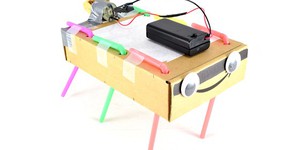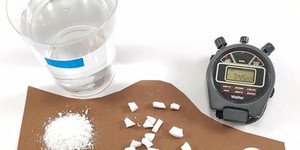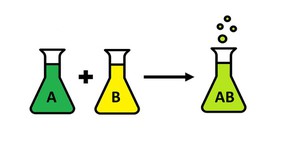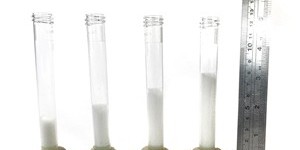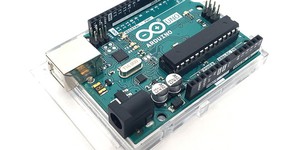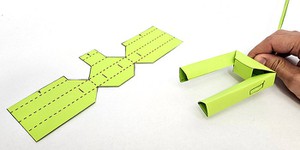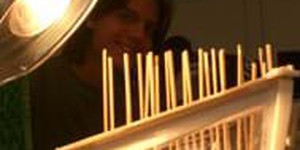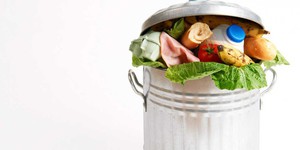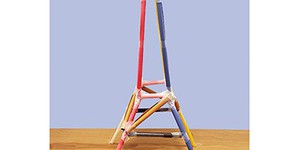Tenth Grade Lesson Plans (65 results)
Science Buddies' tenth grade science projects are the perfect way for tenth grade students to have fun exploring science, technology, engineering, and math (STEM). Our tenth grade projects are written and tested by scientists and are specifically created for use by students in the tenth grade. Students can choose to follow the science experiment as written or put their own spin on the project.
For a personalized list of science projects, tenth graders can use the Science Buddies Topic Selection Wizard. The wizard asks students to respond to a series of simple statements and then uses their answers to recommend age-appropriate projects that fit their interests.
Let us help you find a science project that fits your interests, with our Topic Selection Wizard.|
Select a resource
Sort by
|
Lesson Plan
Grade: 6th-12th
Create a two-part system for filtering greywater. Teams will focus on communication and systems engineering as they build separate components to filter solid and liquid waste and then combine them into one device.
Learning Objectives
Students will:
Consider the potential effects of drought and how greywater could be part of the solution.
Design a system for filtering out solid waste or liquid waste.
Consider effective communication strategies with their team.
Collaborate on their design…
Read more
Featured
Lesson Plan
Grade: 6th-8th
7 reviews
Junkbots are easy-to-build robots that you can make using a simple circuit and some recyclable materials. In this lesson, your students will learn about engineering design as they compete to build the fastest robot. No previous robotics experience is required!
Read more
NGSS Performance Expectations:
Lesson Plan
Grade: 9th-12th
3 reviews
How does surface area affect the speed of a chemical reaction? Let your students find out in this sizzling lesson plan! In this project, they will explore this correlation by crushing Alka-Seltzer® tablets into different sized particles and measuring how long it takes for them to dissolve in water.
Read more
NGSS Performance Expectations:
Lesson Plan
Grade: 9th-12th
7 reviews
This lab discusses types of reactions and replaces traditional reaction experiments involving chemicals such as lead (II) nitrate, barium chloride, and silver nitrate with greener alternatives. This lab is designed to challenge students to identify types of chemical reactions and distinguish between those that use safer, less hazardous chemicals and those that are more dangerous. Students will make a choice as to which reaction they will perform using the 12 Principles of Green Chemistry. They…
Read more
Lesson Plan
Grade: 9th-12th
1 review
In this lesson, students will employ the enzymatic decomposition reaction of hydrogen peroxide to investigate how chemical reactions are affected by enzymes and different substrate concentrations. Students will be challenged to control the rate of the reaction by adjusting the amount of substrate and thus changing the catalase activity. Foam production, created by the enzymatic breakdown of hydrogen peroxide into water and oxygen, will function as a proxy for the reaction rate. Based on their…
Read more
NGSS Performance Expectations:
Lesson Plan
Grade: 6th-12th
7 reviews
This lesson plan will introduce your students to physical computing: the process of building circuits and programming a microcontroller (an Arduino UNO®) to interact with them. The lesson is broken into seven activities that will walk your students through the basics of setting up the Arduino and interacting with circuit parts like LEDs, buttons, and resistors. This introductory material will help prepare your students for more advanced Arduino projects.
Read more
Lesson Plan
Grade: 6th-12th
1 review
When your students think of robots, they probably think of materials like metal or plastic—but what about paper? In this lesson plan, your students will learn to make robotic parts from readily available classroom materials. Optionally, they can apply the engineering design process to improve the design or come up with their own designs.
Read more
Lesson Plan
Grade: 4th-12th
By conducting their own survey of an outdoor environment, students will examine a method for assessing litter, identify how humans impact the environment, and design solutions for preventing marine debris.
Read more
NGSS Performance Expectations:
Lesson Plan
Grade: 9th-12th
Students investigate passive solar building design with a focus solely on heating. They learn how insulation, window placement, thermal mass, surface colors, and site orientation play important roles in passive solar heating. They use this information to design and build their own model houses, and test them for thermal gains and losses during a simulated day and night. Teams compare designs and make suggestions for improvements.Engineering Connection
Passive solar…
Read more
NGSS Performance Expectations:
Lesson Plan
Grade: 3rd-11th
3 reviews
Have you ever thrown away food after a meal? Have you ever thrown away a whole piece of food? What are some of the reasons you threw away that food?
During this Food Waste Audit, students will explore their own impact on our food system. Students will brainstorm solutions to reduce their food waste and be challenged to try out their solution!
Read more
NGSS Performance Expectations:
Lesson Plan
Grade: 9th-12th
6 reviews
Teach your students about the engineering design process with this fun lesson plan. The lesson is based on the real-world challenge of designing an observation tower. Can your students maximize the height of the tower while minimizing the amount of material needed to construct it? Teachers, note that elementary and middle school versions of this lesson plan are also available. The 2021 Engineering Challenge is over, but you can still try out this fun challenge with your students, or check…
Read more
NGSS Performance Expectations:
|
Explore Our Science Videos
Volleyball Machine: 2019 Engineering Challenge
Colorful Melting Ice Ball Patterns - STEM Activity
Write and Read Braille – STEM activity




